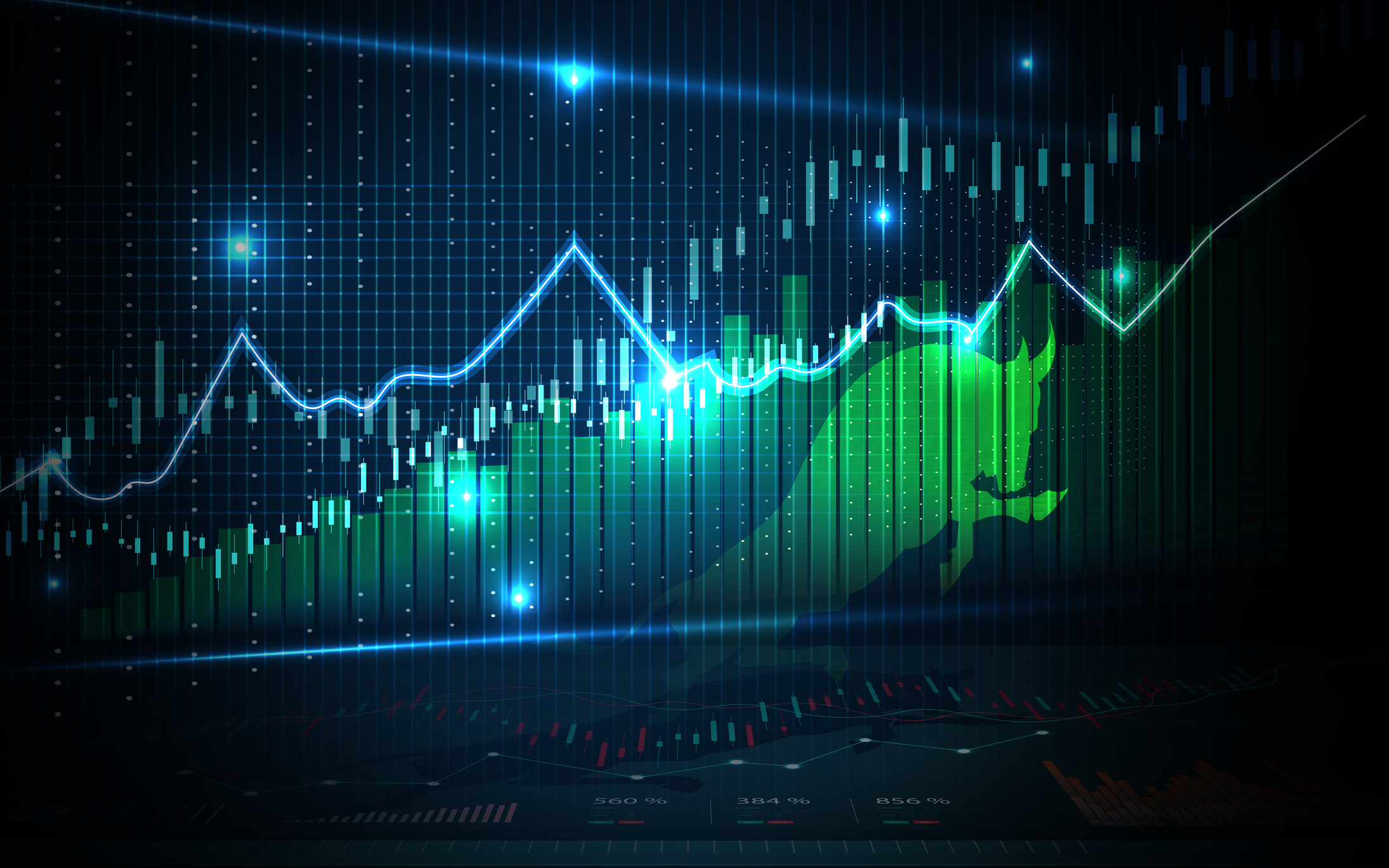5 Buy-and-Hold Stocks You Shouldn't Hold Anymore
Part of the beauty of buy-and-hold investing is its simplicity.


Profit and prosper with the best of Kiplinger's advice on investing, taxes, retirement, personal finance and much more. Delivered daily. Enter your email in the box and click Sign Me Up.
You are now subscribed
Your newsletter sign-up was successful
Want to add more newsletters?

Delivered daily
Kiplinger Today
Profit and prosper with the best of Kiplinger's advice on investing, taxes, retirement, personal finance and much more delivered daily. Smart money moves start here.

Sent five days a week
Kiplinger A Step Ahead
Get practical help to make better financial decisions in your everyday life, from spending to savings on top deals.

Delivered daily
Kiplinger Closing Bell
Get today's biggest financial and investing headlines delivered to your inbox every day the U.S. stock market is open.

Sent twice a week
Kiplinger Adviser Intel
Financial pros across the country share best practices and fresh tactics to preserve and grow your wealth.

Delivered weekly
Kiplinger Tax Tips
Trim your federal and state tax bills with practical tax-planning and tax-cutting strategies.

Sent twice a week
Kiplinger Retirement Tips
Your twice-a-week guide to planning and enjoying a financially secure and richly rewarding retirement

Sent bimonthly.
Kiplinger Adviser Angle
Insights for advisers, wealth managers and other financial professionals.

Sent twice a week
Kiplinger Investing Weekly
Your twice-a-week roundup of promising stocks, funds, companies and industries you should consider, ones you should avoid, and why.

Sent weekly for six weeks
Kiplinger Invest for Retirement
Your step-by-step six-part series on how to invest for retirement, from devising a successful strategy to exactly which investments to choose.
Part of the beauty of buy-and-hold investing is its simplicity. The market always has occasional pullbacks and crashes, but the long-term trend has always been up. A high-quality company with an extensive track record of success and reasonably priced (or even cheap) shares will go along for the ride, if the investor is patient enough.
But as with every other investing strategy, it doesn’t always work out.
Warren Buffett is one of the greatest buy-and-hold investors of all time. He has held a stake in American Express (AXP) for more than half a century, for example, and he says his favorite holding period is "forever." And yet he knows that sometimes an investor needs to cut and run from even the most storied names. Once a major shareholder in Johnson & Johnson (JNJ), Buffett's Berkshire Hathaway (BRK.B) today holds only a token stake.
Times change and fortunes ebb and flow, but long-term holdings should be able to sail through it all. That used to be true of the names on our list. These famous companies once were titans in their respective industries, but future decades won't be as good to them as the past. Have a look at these former buy-and-hold stocks that are no longer worth buying or holding.
Data is as of Oct. 30, 2017. Companies are listed in alphabetical order. Dividend yields are calculated by annualizing the most recent quarterly payout and dividing by the share price. Analysts' ratings provided by Zacks Investment Research. Click on symbol links in each slide for current share prices and more.

Comcast
- Symbol: CMCSA
- Share price: $36.50
- Dividend yield: 1.7%
- Analysts' ratings: 19 strong buy, 1 buy, 1 hold, 0 sell, 0 strong sell
- Comcast's stock has been red-hot throughout the bull market. Shares are up 527% since March 2009 and have delivered an annualized return of 11.8% since 2002. Comcast grew fat on the relentless growth of broadband through the first decade of the century, offering services such as internet access, cable TV and telephone.
But changing trends spell bad news for the company's growth prospects. As good a run as Comcast has had, today it's struggling to retain subscribers. For instance, it lost 125,000 TV customers in its third quarter, accelerating its losses after a 90,000-subscriber exodus in its second quarter. Chalk it up to the growing phenomenon of cord cutting. Costumers are increasingly cancelling their cable TV packages and accessing their shows through apps such as Netflix (NFLX) and Hulu.
Although shares are down 13% since hitting a record high in early June, Comcast isn't going to collapse overnight. Analysts at UBS, who rate shares at "Buy," found a lot to like in the company's third-quarter report. But the relentless drip, drip, drip of subscriber losses makes it hard to feel confident about the long haul.

General Electric
- Symbol: GE
- Share price: $20.41
- Dividend yield: 4.7%
- Analysts' ratings: 5 strong buy, 1 buy, 3 hold, 0 sell, 4 strong sell
- General Electric holds a special place in the history of the stock market: It's one of the 12 stocks that made up the original Dow Jones Industrial Average in 1896. Perhaps even more impressive, GE still is in the Dow today.
The company has undergone tremendous change over time. General Electric's latest transformation was spawned during last decade's Great Recession. In response to tightening regulations, management was compelled to sell off the company's sprawling financial operations, a powerful source of profits. The GE of today is a pure industrial conglomerate, and investors aren't quite sure what to make of its prospects. In mid-October, CEO John Flannery pledged sweeping changes after what he deemed a "horrible quarter." Part of the restructuring will include the sale of $20 billion in assets.
Back in April it looked like GE remained an attractive pick for income investors, but the situation has since deteriorated. Analysts from Goldman Sachs, Morgan Stanley and UBS even say a dividend cut is likely.
Perhaps General Electric can pull off the trick of becoming a smaller, nimbler, more profitable company. But it's a tall order to expect GE to be the kind of classic buy-and-hold stock it has been for more than a century. Shares generated an annualized gain of 10.7% from 1926 to 2016, according to Hendrik Bessembinder of Arizona State University's W. P. Carey School of Business. Over the past 10 years, however, it has lost nearly half its value.

HP Inc.
- Symbol: HPQShare price: $21.39
- Dividend yield: 2.5%
- Analysts' ratings: 6 strong buy, 2 buy, 4 hold, 0 sell, 0 strong sell
Known as Hewlett-Packard before it spilt into two companies, HP Inc. is the granddaddy of Silicon Valley tech firms. For roughly 60 years it was a profit machine, and shares reflected it. Indeed, from 1962 to 2016, the stock generated an annualized return of 9.9%.
The beginning of the end for the company in its original form started with its disastrous 2002 acquisition of Compaq to form the world's largest maker of PCs. Soon thereafter, the PC market became saturated with low profit margins. The company was dropped from the Dow in 2013 and split into HP Inc. and Hewlett Packard Enterprise (HPE) in 2015.
With global PC sales being a slowly melting iceberg, it's difficult to see how this once-great tech stock can reclaim its former glory. Analysts at UBS have a "Buy" recommendation on shares, but they acknowledge the consensus view that HP is ultimately a "secular loser" because the printer and PC markets are in long-term decline.

Macy's
- Symbol: MShare price: $18.84
- Dividend yield: 8.1%
- Analysts' ratings: 2 strong buy, 0 buy, 9 hold, 0 sell, 1 strong sell
The nation's largest department store operator and possibly retail's most famous name traces its lineage back to the 19th century. But department stores and shopping malls are fast falling out of favor with younger shoppers, and retail stocks are losing clout with investors. The rise of e-commerce players like Amazon.com (AMZN) and shifting consumer tastes are to blame.
Alas, the once iconic concept of the department store has passed.
For much of its life, Macy's stock was a solid bet. From 1992 to 2015, shares rose about 800% on a price basis alone. But those days are long gone. Macy's stock is down 74% since hitting an all-time closing high a little more than two years ago. Macy's stock looks cheap at first blush, trading at just 7 times analysts' estimates for next year's profits. The dividend yield of 8% is a whopper too. But sometimes a stock is cheap for a reason, and the yield is up so high only because its price has fallen so far. Macy's might not disappear altogether anytime soon, but its days as a buy-and-hold stock are long gone.

Sears Holdings
- Symbol: SHLDShare price: $5.64
- Dividend yield: N/A
- Analysts' ratings: N/A
It's amazing that Sears Holdings – once the Amazon of the 19th century – still is alive and kicking. After all, it has been in decline since at least 2005, when it merged with Kmart to fight off the emergence of big-box retailers like Walmart (WMT).
Cut to today, and the rise of e-commerce companies like Amazon has made any kind of comeback all but impossible. Sears has racked up 10 straight years of falling sales and hasn't reported a profit since 2011. The company is worth just $606 million by market capitalization and sports $212 million in cash and short-term investments against a whopping $4 billion in debt.
Before it was bought by Kmart, predecessor Sears, Roebuck & Co. was one of the greatest buy-and-hold stocks of all time. From 1926 to 2005, the original Sears generated an annualized return of 10.9% to amass $121 billion in lifetime wealth creation. Modern-day Sears has lost 96% of its value over the past decade.
As sad as it may be, the once-mighty retailer has fallen.
*No analysts tracked by Zacks are currently monitoring Sears.
Profit and prosper with the best of Kiplinger's advice on investing, taxes, retirement, personal finance and much more. Delivered daily. Enter your email in the box and click Sign Me Up.

Dan Burrows is Kiplinger's senior investing writer, having joined the publication full time in 2016.
A long-time financial journalist, Dan is a veteran of MarketWatch, CBS MoneyWatch, SmartMoney, InvestorPlace, DailyFinance and other tier 1 national publications. He has written for The Wall Street Journal, Bloomberg and Consumer Reports and his stories have appeared in the New York Daily News, the San Jose Mercury News and Investor's Business Daily, among many other outlets. As a senior writer at AOL's DailyFinance, Dan reported market news from the floor of the New York Stock Exchange.
Once upon a time – before his days as a financial reporter and assistant financial editor at legendary fashion trade paper Women's Wear Daily – Dan worked for Spy magazine, scribbled away at Time Inc. and contributed to Maxim magazine back when lad mags were a thing. He's also written for Esquire magazine's Dubious Achievements Awards.
In his current role at Kiplinger, Dan writes about markets and macroeconomics.
Dan holds a bachelor's degree from Oberlin College and a master's degree from Columbia University.
Disclosure: Dan does not trade individual stocks or securities. He is eternally long the U.S equity market, primarily through tax-advantaged accounts.
-
 Look Out for These Gold Bar Scams as Prices Surge
Look Out for These Gold Bar Scams as Prices SurgeFraudsters impersonating government agents are convincing victims to convert savings into gold — and handing it over in courier scams costing Americans millions.
-
 How to Turn Your 401(k) Into A Real Estate Empire
How to Turn Your 401(k) Into A Real Estate EmpireTapping your 401(k) to purchase investment properties is risky, but it could deliver valuable rental income in your golden years.
-
 My First $1 Million: Retired Nuclear Plant Supervisor, 68
My First $1 Million: Retired Nuclear Plant Supervisor, 68Ever wonder how someone who's made a million dollars or more did it? Kiplinger's My First $1 Million series uncovers the answers.
-
 What Fed Rate Cuts Mean For Fixed-Income Investors
What Fed Rate Cuts Mean For Fixed-Income InvestorsThe Fed's rate-cutting campaign has the fixed-income market set for an encore of Q4 2024.
-
 Markets Are Quiet Ahead of Fed Day: Stock Market Today
Markets Are Quiet Ahead of Fed Day: Stock Market TodayInvestors, traders and speculators appear to be on hold amid an unusually fraught Fed meeting.
-
 The Most Tax-Friendly States for Investing in 2025 (Hint: There Are Two)
The Most Tax-Friendly States for Investing in 2025 (Hint: There Are Two)State Taxes Living in one of these places could lower your 2025 investment taxes — especially if you invest in real estate.
-
 The Final Countdown for Retirees with Investment Income
The Final Countdown for Retirees with Investment IncomeRetirement Tax Don’t assume Social Security withholding is enough. Some retirement income may require a quarterly estimated tax payment by the September 15 deadline.
-
 DexCom, GE, SLB: Why Experts Rate These Stocks at Strong Buy
DexCom, GE, SLB: Why Experts Rate These Stocks at Strong BuyWall Street gives these three diverse names Strong Buy recommendations with high potential upside.
-
 The Best Aerospace and Defense ETFs to Buy
The Best Aerospace and Defense ETFs to BuyThe best aerospace and defense ETFs can help investors capitalize on higher defense spending or hedge against the potential of a large-scale conflict.
-
 AI vs the Stock Market: How Did Alphabet, Nike and Industrial Stocks Perform in June?
AI vs the Stock Market: How Did Alphabet, Nike and Industrial Stocks Perform in June?AI is a new tool to help investors analyze data, but can it beat the stock market? Here's how a chatbot's stock picks fared in June.
-
 Stock Market Today: Stocks Rise on Less Deadly Concerns
Stock Market Today: Stocks Rise on Less Deadly ConcernsMarkets are forward-looking mechanisms, and it's good when price action shows there's a future to look forward to.
